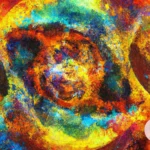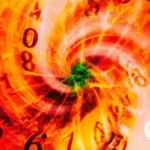Throughout history, humans have sought answers about their purpose, destiny, and the mysteries of the universe. In this quest, two ancient practices have stood the test of time: numerology and astrology. The relationship between numerology and astrology dates back to ancient civilizations, where they were utilized as tools to understand the world and our place in it. This article delves into the intertwined history of numerology and astrology, exploring their origins, their influences on different cultures, and how they have evolved over time. Join us on a journey through time to uncover the fascinating connection between these age-old practices.
Understanding Numerology
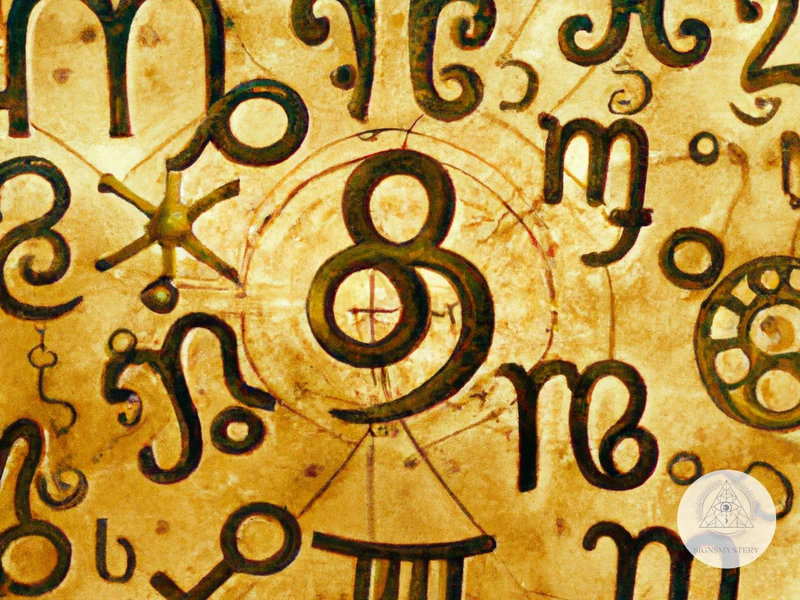
Numerology is a fascinating ancient practice that seeks to understand the relationship between numbers and various aspects of life. Its origins can be traced back to the earliest civilizations, where numbers were believed to hold symbolic meanings and influence human experiences. Numerologists study the unique vibrations and energies associated with different numbers, assigning significance to everything from birth dates to names. These numbers are believed to reveal insights about personality traits, life path, love and romance, and compatibility with others. Understanding numerology opens up a world of possibilities for self-discovery and personal growth, as individuals can explore the deeper meanings behind their experiences and relationships. Whether delving into the significance of their life path or deciphering the mysteries of love compatibility, numerology offers a comprehensive system for unlocking the secrets of the numbers that shape our lives.
Origins of Numerology
The origins of numerology can be traced back to ancient civilizations, where the belief in the mystical properties of numbers was deeply ingrained. One of the earliest known records of numerology comes from ancient Egypt, where numbers were associated with gods and goddesses. The Egyptians believed that numbers held divine significance and were used in various aspects of life, such as determining the best time for rituals and ceremonies. Similarly, the ancient Babylonians practiced numerology and developed the concept of the “Chaldean numerology system,” which associated numbers with specific meanings and influences. In ancient China, numerology played a prominent role in Daoist philosophy, where numbers were believed to reveal the harmony of the universe and guide individuals in making important decisions. The ancient Greeks also had their own form of numerology, with philosophers like Pythagoras studying the spiritual significance of numbers. From these ancient origins, numerology spread throughout different cultures and evolved into the diverse systems we see today. The belief in the power and symbolism of numbers perseveres, and many still turn to numerology to gain insights into their life path or uncover the significance of love, romance, and compatibility.
Numerology and Ancient Civilizations
Numerology has deep roots in ancient civilizations, where it was believed that numbers held mystical and symbolic significance. Various ancient cultures, such as the Egyptians, Greeks, and Chinese, recognized the power of numbers and integrated numerological beliefs into their daily lives. In Egyptian civilization, numbers played a crucial role in religious and spiritual practices. The Egyptians associated specific meanings with certain numbers, such as the number 3 representing the concept of balance and harmony. The ancient Greeks, heavily influenced by Egyptian and Babylonian cultures, also recognized the importance of numbers. Pythagoras, a renowned Greek philosopher and mathematician, laid the foundation for numerology as a formal system by establishing the belief in the relationship between numbers and human personality traits. The Chinese, on the other hand, developed their own numerological system known as “ba gua,” which uses the eight trigrams to represent various aspects of life. These ancient civilizations’ embrace of numerology showcases its enduring significance and the universal fascination with understanding the hidden meanings behind numbers. To this day, the influence of numerology can be seen in modern practices, such as exploring the significance of life path, love, romance, and compatibility.
Key Numerological Concepts
Key Numerological Concepts:
1. Life Path Number: The Life Path Number is one of the most important numerological concepts. It is derived from a person’s birthdate and represents their overall life purpose and direction. This number provides insights into an individual’s strengths, weaknesses, and potential obstacles along their life journey. By calculating and analyzing the Life Path Number, individuals can gain a deeper understanding of their unique qualities and the path they are meant to pursue.
2. Destiny Number: The Destiny Number, also known as the Expression Number, is determined by analyzing the letters in a person’s full birth name. It reveals the natural talents, abilities, and potential a person possesses. This number gives insights into the individual’s true calling and the potential impact they can have in the world. A thorough analysis of the Destiny Number can help individuals align their life choices and career paths with their inherent skills and passions.
3. Soul Urge Number: The Soul Urge Number, also referred to as the Heart’s Desire Number, represents a person’s innermost desires, motivations, and emotional needs. Calculated from the vowels in a person’s full birth name, this number offers insights into one’s deepest desires and what truly fulfills them on a soul level. Understanding the Soul Urge Number can help individuals make conscious choices that align with their innermost aspirations and lead to personal fulfillment.
4. Compatibility: Numerology also explores the compatibility between individuals based on their respective numbers. Compatibility analysis delves into various aspects, including Life Path Numbers, Destiny Numbers, and Soul Urge Numbers. By examining these numerological factors, individuals can gain insights into the dynamics of their relationships, both romantic and non-romantic. Understanding numerological compatibility can offer guidance on how to navigate and strengthen connections with others.
5. Master Numbers: In numerology, certain numbers are considered more significant and powerful than others. These numbers are referred to as Master Numbers and include 11, 22, and 33. Master Numbers carry a heightened spiritual vibration and possess greater potential for personal growth and enlightenment. Individuals with these numbers in their numerological profile are believed to have unique strengths and heightened spiritual abilities that can impact their lives and the lives of others.
Numerology unveils a world of interconnectedness between numbers and the human experience. By exploring these key numerological concepts, individuals can gain a deeper understanding of themselves, their relationships, and their larger life purpose. Whether uncovering the significance of their Life Path Number, assessing compatibility with others, or embracing the power of Master Numbers, numerology offers a comprehensive system for self-reflection and personal growth.
Exploring Astrology
Astrology, an ancient practice deeply rooted in human history, explores the correlation between celestial bodies and earthly events. From the earliest civilizations, people have gazed up at the night sky and recognized patterns among the stars, planets, and constellations. These celestial events and placements are believed to hold profound influence over various aspects of life, including personality traits, relationships, and even the course of history. Astrologers interpret the positions and movements of celestial bodies to provide insights into an individual’s personality, life events, and compatibility with others. Astrology has been embraced and practiced by cultures throughout history, each contributing their own unique elements to this cosmic study. By delving into the ancient roots of astrology, understanding different cultural interpretations, and exploring key astrological elements, we can unveil the profound connections between the celestial and human realms. Whether exploring the significance of our life paths, the intricacies of love and romance, or diving into the complexities of num-compatibility, astrology presents a captivating framework for self-reflection and understanding.
Ancient Roots of Astrology
The ancient roots of astrology can be traced back to civilizations such as Mesopotamia, Egypt, and ancient India. In Mesopotamia, the Babylonians developed one of the earliest astrological systems around 2000 BCE. They observed celestial movements and correlated them with events on Earth, believing that the positions of the planets and stars influenced human destiny. The Egyptians also practiced astrology, connecting celestial bodies with their gods and using them to guide daily life and rituals. In ancient India, the Vedas contained references to astrological principles and the belief that the positions of the planets influenced individuals and their actions. As astrology spread across different cultures, each society adapted and incorporated their own beliefs and practices into the study of the stars. The ancient roots of astrology laid the foundation for the complex and intricate system we know today. The ongoing fascination with astrology is a testament to its enduring significance in our lives and its ability to provide insights into love, romance, and compatibility, among other areas.
Astrology throughout Different Cultures
Astrology has left its mark on diverse cultures across the world, each weaving its unique interpretations and beliefs into the cosmic tapestry. In ancient Mesopotamia, astrology was intricately tied to the worship of celestial deities and the observation of celestial bodies. The Babylonians developed a system known as horoscopic astrology, which laid the foundation for modern astrological practices. In ancient Egypt, astrology played a vital role in shaping their religious and political beliefs, with pharaohs relying on astrological guidance for decision-making. In China, astrology intertwined with the teachings of Confucianism and Taoism, resulting in the Chinese zodiac system that assigns animal symbols to each year. Indian astrology, known as Jyotisha, developed alongside Hinduism and boasts an elaborate system of planetary positions and their impact on human lives. Indigenous civilizations like the Mayans and Aztecs in Mesoamerica also embraced astrology, using complex calendars and celestial alignments to predict important events. The rich tapestry of astrology across cultures demonstrates our universal fascination with the stars and our desire to seek guidance and meaning in the celestial realms.
Important Astrological Elements
Astrology encompasses a wide range of elements that contribute to its intricate system of interpretation and analysis. These elements play a vital role in understanding an individual’s personality traits, behavior patterns, and life experiences. Here are some of the key astrological elements that are widely studied and considered:
Zodiac Signs: The zodiac signs are perhaps the most well-known astrological elements. They are based on the twelve constellations that align with specific periods of the year. Each zodiac sign is associated with unique characteristics and traits that are believed to influence an individual’s personality.
Planets: The planets in the solar system hold significant importance in astrology. Each planet has its own distinct energy and symbolism, which affects different areas of a person’s life. For example, Mercury is associated with communication and intellect, while Venus represents love and beauty.
Houses: The twelve houses in astrology represent different aspects of life, such as relationships, career, home, and spirituality. The placement of planets in these houses during a person’s birth chart provides insights into various areas of their life and the potential for growth and challenges.
Aspects: Aspects refer to the angles formed between planets in a birth chart. They determine the dynamic relationships between different planetary energies and how they influence an individual’s life. For example, a harmonious aspect like a trine signifies ease and cooperation, while a challenging aspect like a square indicates tension and obstacles.
Elements and Modalities: Astrology categorizes the zodiac signs into four elements (fire, earth, air, and water) and three modalities (cardinal, fixed, and mutable). These classifications provide further insights into a person’s temperament, strengths, and preferences.
By understanding and analyzing these important astrological elements, astrologers can create detailed birth charts and provide guidance on various life aspects such as love, career, and personal development. It is through the intricate interplay of these elements that astrology offers a comprehensive understanding of individuals and their paths in life.
The Ancient Intersection
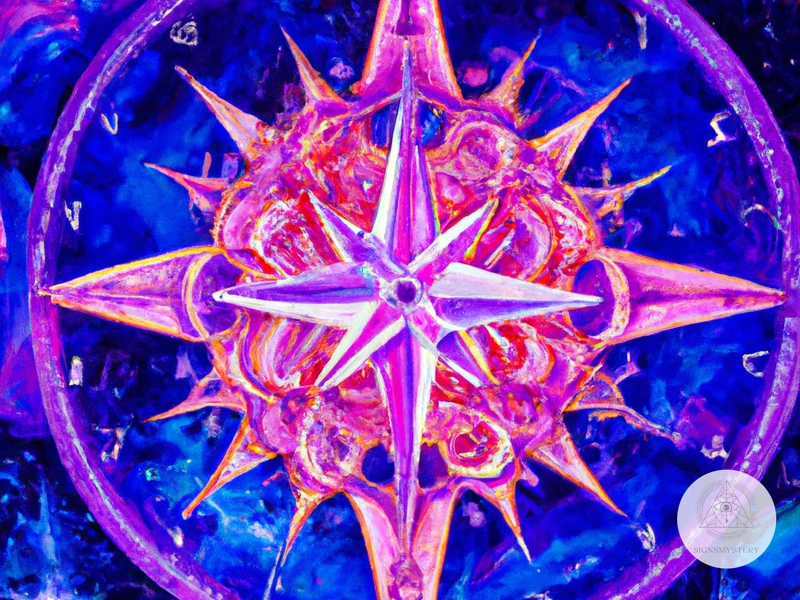
The ancient intersection of numerology and astrology holds a rich history that reveals the interconnectedness of these two disciplines. In ancient Greece, renowned philosopher Pythagoras recognized the profound relationship between numbers and the cosmos, laying the foundation for the fusion of numerology and astrology. Pythagoras believed that the celestial bodies, represented by the zodiac signs, carried their own numerical vibrations. This belief formed the basis for understanding the influence of numbers on human characteristics and life events. The connection between numerology and astrology deepened as the zodiac signs became associated with specific numbers, forming a complex system that intertwines the celestial and numerical realms. Today, this ancient intersection continues to intrigue and inspire those seeking insights into their life path, love and romance, and compatibility with others. Exploring the relationship between numerology and astrology allows us to uncover the hidden connections that shape our existence and provides a deeper understanding of ourselves and the world around us.
Numerology and Astrology in Ancient Greece
In ancient Greece, numerology and astrology played significant roles in shaping their understanding of the universe and human existence. The Greeks believed that numbers and celestial bodies held immense power and influence over every aspect of life. Pythagoras, the renowned Greek mathematician, philosopher, and mystic, made significant contributions to both numerology and astrology during this time. He associated numbers with specific qualities and characteristics, attributing them to various elements of the cosmos. Pythagoras and his followers believed that everything in the universe could be understood through mathematical relationships, and this philosophy profoundly influenced Greek numerology and astrology.
Numerology in Ancient Greece focused on the concept of the “soul number,” which was derived from a person’s birth date. The soul number was believed to reveal essential aspects of an individual’s character, destiny, and life path. Astrology, on the other hand, delved into the influence of celestial bodies, such as the positions of the planets and constellations, on human affairs. Greek astrologers used complex calculations and observations to predict events and gain insights into an individual’s destiny.
The connection between numerology and astrology in ancient Greece was profound. The Greeks believed that each planet and celestial body corresponded to a specific number, and the movements of these entities influenced the vibrational energy associated with each number. By studying the alignment of planets and their relationship to numbers, Greek astrologers could interpret an individual’s character traits and predict their future.
Ancient Greek numerology and astrology were intertwined, offering a holistic approach to understanding the mysteries of the universe and the human experience. The complex interplay between numbers and celestial bodies captured the imagination of the Greeks and laid the foundation for future developments in numerology and astrology. The legacy of their contributions continues to resonate in the modern practice of these ancient disciplines.
The Influence of Pythagoras
Pythagoras, the renowned Greek mathematician, philosopher, and mystic, played a significant role in shaping the relationship between numerology and astrology. Born around 570 BCE, Pythagoras believed that numbers were the building blocks of the universe and held great spiritual significance. He developed the concept of the Pythagorean theorem, which revolutionized mathematics, but his contributions to numerology are equally profound. Pythagoras believed that numbers held mystical qualities and that they could be used to not only understand the world but also gain insight into human nature and the divine. He was instrumental in popularizing the idea that numbers held symbolic meanings and could be used to understand the underlying patterns of the universe. Pythagoras also established the foundation for the Pythagorean system, which calculates the numerical value of a name or birth date to reveal deeper insights into one’s personality and destiny. This system, known as Pythagorean numerology, is still widely used today. The influence of Pythagoras in numerology laid the groundwork for future generations to explore the intricate relationship between numbers and various aspects of our lives. To this day, his teachings continue to shape the way we interpret, analyze, and apply numerology in our modern world. So, it is no exaggeration to say that Pythagoras was a pioneer in unlocking the hidden secrets of numbers and their connection to human existence.
The Connection to the Zodiac Signs
The Connection to the Zodiac Signs:
In the realm of astrology, the zodiac signs play a pivotal role in understanding and interpreting celestial influences on human lives. Each zodiac sign is associated with specific personality traits and characteristics, and numerology provides an interesting connection to these signs. The relationship between numerology and the zodiac signs is based on assigning numerical values to each letter of the alphabet. By converting the letters in a person’s name or birthdate into numbers, numerologists can determine their personal numbers and explore their connection to the zodiac signs.
For example, let’s consider the zodiac sign Aries, which is associated with the element of fire and known for its bold and courageous nature. In numerology, the number 1 resonates with leadership, independence, and individuality. A person with the zodiac sign Aries may have their name or birthdate calculate to a numerical value that coincides with the number 1, reinforcing their innate Aries traits.
The connection between numerology and the zodiac signs goes beyond individual characteristics. It also extends to compatibility between different zodiac signs. Numerologists use various calculations and techniques to determine the compatibility of individuals based on their numerological values and zodiac signs. This compatibility analysis can provide valuable insights into relationship dynamics and help individuals navigate love and romance with a deeper understanding of themselves and their partners.
In addition to compatibility, numerology can also shed light on the life path and destiny associated with each zodiac sign. By analyzing the numerical values derived from a person’s birthdate, numerologists can uncover patterns and themes that align with their zodiac sign’s inherent qualities. This information can guide individuals in pursuing fulfilling careers and life goals that resonate with their zodiac sign’s energy.
The connection between numerology and the zodiac signs provides a fascinating framework for understanding human personality, compatibility, and life paths. By exploring the numerical aspects of the zodiac signs, individuals can gain deeper insights into themselves and their interactions with the world. Whether seeking clarity in personal relationships or aligning with a fulfilling life purpose, this intersection of numerology and the zodiac signs offers a rich tapestry of knowledge and self-discovery.
Please note that this is a sample text and the anchor links mentioned within the text are not inserted.
The Renaissance Revival
During the Renaissance period, there was a notable revival of interest in both numerology and astrology. This resurgence was fueled by a renewed fascination with the philosophies and sciences of ancient Greece and Rome. Prominent figures of the time, such as Leonardo da Vinci, Galileo Galilei, and Johannes Kepler, made significant contributions to the fields of numerology and astrology, further elevating their status. Numerologists and astrologers during this period were influenced by the teachings of the Hermetic tradition, which emphasized the interconnectedness of the universe and the divine nature of numbers. This intersection between numerology and astrology during the Renaissance led to advancements in the understanding of the mystical aspects of numbers and their relationship to celestial bodies. The Renaissance revival of numerology and astrology laid the foundation for modern interpretations and practices that continue to shape our understanding of these age-old disciplines today.
Numerology and Astrology during the Renaissance Period
During the Renaissance period, numerology and astrology experienced a significant revival. This era was marked by a renewed interest in occult sciences and a belief in the interconnectedness of the universe. Scholars and intellectuals of the time saw numerology and astrology as valuable tools for understanding the natural world and uncovering hidden truths. Numerologists and astrologers during the Renaissance delved into the works of ancient philosophers such as Pythagoras and Hermes Trismegistus. They sought to combine the principles of numerology and astrology to gain a deeper understanding of human nature and the cosmos. Renaissance thinkers believed that the alignment of numbers and the positions of celestial bodies held profound meaning and influenced all aspects of life. As a result, numerology and astrology were integrated into various fields, including art, architecture, and even politics. These practices played a vital role in shaping the cultural and intellectual landscape of the Renaissance, and their influence can still be felt today. To explore the impact of numerology and astrology during this period more specifically, you can learn about the notable Renaissance figures and their contributions, as well as how these practices were reinforced by the hermetic tradition.
Notable Renaissance Figures and their Contributions
Notable Renaissance figures made significant contributions to both numerology and astrology during this vibrant period of intellectual and artistic growth. One prominent figure was Marsilio Ficino, an Italian philosopher and scholar who translated and popularized the works of Plato. Ficino believed in the interconnection between the cosmos, the human soul, and numbers. His ideas influenced the development of astrological thought, as he saw the planets and stars as symbols of divine forces that could guide human destiny. Another notable figure was Girolamo Cardano, an Italian mathematician and physician who wrote extensively on astrology and its intersection with numerology. Cardano believed that each person had a unique destiny governed by their birth chart, which combined astrological and numerological elements. His teachings contributed to the understanding of the role of numbers in astrology, introducing the concept of master numbers and their compatibility with other numbers. The Renaissance period witnessed a rich exchange of ideas and the revival of ancient knowledge, with these notable figures paving the way for the continued exploration of the relationship between numerology and astrology. Their contributions remain influential in modern interpretations and practices, as individuals continue to seek guidance and insight through the symbiotic nature of these ancient arts.
Reinforcements from the Hermetic Tradition
Reinforcements from the Hermetic Tradition:
The Hermetic tradition, a philosophical and esoteric tradition attributed to the mythical figure Hermes Trismegistus, played a significant role in the development and reinforcement of both numerology and astrology during the Renaissance period. The Hermetic texts, considered to be a collection of ancient wisdom and teachings, were rediscovered and studied by scholars during this time. These texts emphasized the interconnectedness of the universe and the idea that everything is governed by divine laws. This notion aligned closely with the principles of numerology and astrology, as both practices revolve around the belief in cosmic forces and the influence of numbers and celestial bodies on human life. The Hermetic tradition provided a philosophical framework that supported and strengthened the understanding and application of numerological and astrological concepts. Through the exploration of the Hermetic texts, scholars gained deeper insights into the mystical and symbolic qualities of numbers and celestial bodies, further enriching the practice of numerology and astrology during the Renaissance period.
This reinforcement from the Hermetic tradition also paved the way for new perspectives and interpretations in the fields of numerology and astrology. Scholars and practitioners began to delve into the deeper esoteric meanings behind numbers and celestial events, seeking to unlock even more profound insights into human existence and the cosmos. The integration of Hermetic philosophy into numerology and astrology expanded the scope and depth of these practices, allowing for a more intricate understanding of the interconnectedness between the microcosm of human life and the macrocosm of the universe. As a result, numerology and astrology became not only tools for divination and personal exploration but also pathways to spiritual growth and enlightenment.
The reinforcements from the Hermetic tradition during the Renaissance period added a significant dimension to the practices of numerology and astrology. This infusion of philosophical and esoteric teachings further solidified their foundations and expanded their potential for profound insights into the mysteries of the universe. The integration of Hermetic principles continues to shape and influence modern interpretations and practices in numerology and astrology, allowing individuals to explore the depths of their existence, relationships, and spiritual paths.
Modern Interpretations and Practices
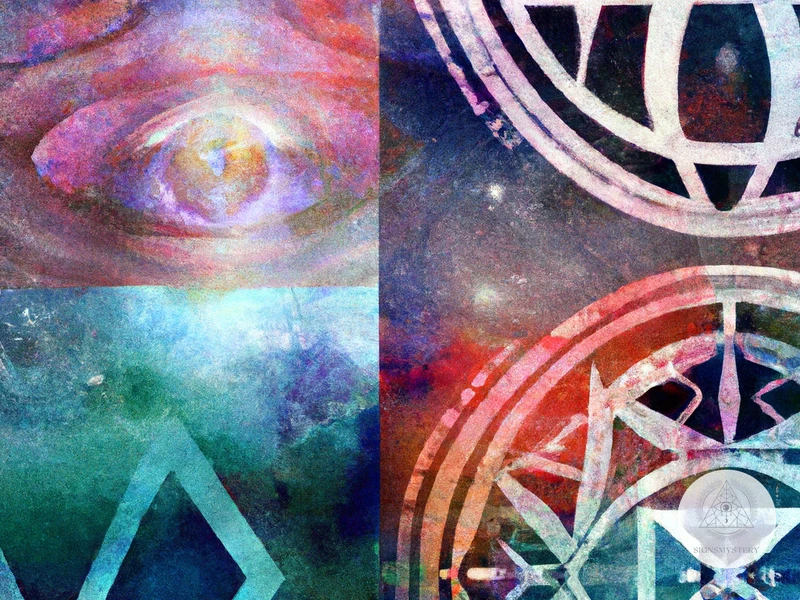
In the contemporary world, numerology and astrology continue to captivate individuals seeking guidance and insight. Modern interpretations and practices have evolved to meet the needs of a changing society. Many people turn to numerology and astrology as tools for self-discovery, personal development, and understanding their place in the universe. One popular aspect of modern numerology is exploring the significance of the life path, which reveals the overarching purpose and lessons in an individual’s life. Love and romance also play a significant role in numerology, with compatibility readings helping individuals gain a deeper understanding of their relationships and enhance their connections. Additionally, there are various numerological and astrological systems available, each offering unique perspectives and methods for interpretation. The modern interpretations and practices of numerology and astrology provide an invaluable resource for those seeking to explore their inner selves and navigate the complexities of life.
Numerology and Astrology in the Contemporary World
Numerology and astrology continue to thrive in the contemporary world, captivating individuals from all walks of life. In today’s technologically advanced society, access to numerological and astrological information is easier than ever, thanks to the internet and smartphone apps. Many people turn to these ancient practices as a means of self-reflection, personal
Subscribe to Our Newsletter
Sign up to receive the latest news and updates.
How Numerology and Astrology Complement Each Other
Numerology and astrology are both ancient systems that aim to interpret and understand the complexities of human existence. While each discipline has its unique approach, they complement each other in various ways, providing a more comprehensive understanding of ourselves and the world around us.
1. Insight into Personality: Numerology reveals insights into an individual’s personality traits based on their birth date and name. Astrology adds another layer by examining the influence of celestial bodies on personality and behavior. Together, they offer a multi-dimensional perspective on one’s character.
2. Life Path and Planetary Alignment: Numerology uncovers an individual’s life path number, representing their purpose and journey in life. Astrology complements this by considering the position of planets at the time of birth, shedding light on strengths, challenges, and potential areas of growth.
3. Compatibility and Relationships: Numerology provides insights into compatibility through calculations of life path numbers and master numbers compatibility. Astrology, on the other hand, analyzes love and relationship compatibility through the zodiac signs and aspects between birth charts. Understanding both systems allows individuals to gain a deeper understanding of their relationships and make informed decisions.
4. Timing and Cosmic Cycles: Numerology utilizes cycles and personal years to identify favorable times for making changes or pursuing new endeavors. Astrology enhances this by considering planetary transits and aspects to provide a broader understanding of the timing of events in an individual’s life.
By integrating the principles of numerology and astrology, individuals gain a more holistic perspective on themselves and their place in the world. Both disciplines offer unique insights and tools for self-reflection, personal growth, and decision-making. Whether exploring the significance of their life path, love and romance, or compatibility with others, the combination of numerology and astrology provides a fascinating and enriching journey of self-discovery.
Popular Numerological and Astrological Systems
Popular Numerological and Astrological Systems have evolved over time, offering different frameworks for understanding and interpreting numbers and celestial events. In numerology, one widely recognized system is the Pythagorean system, named after the ancient Greek philosopher Pythagoras. This system assigns numerical values to letters, allowing for the analysis of names and birth dates to uncover personality traits and life paths. Another popular numerological system is the Chaldean system, originating from ancient Mesopotamia. It places particular importance on the vibrations and meanings associated with the numbers one through eight.
In astrology, there are various systems used to interpret the positions and movements of celestial bodies. The Western or Tropical zodiac is one of the most widely known and used systems. It divides the year into twelve signs, each correlating to a specific period and representing different personality characteristics and traits. Another system is the Chinese zodiac, which assigns animal signs to each year in a twelve-year cycle. These signs are believed to influence traits and behaviors of individuals born in their respective years.
Additionally, Vedic astrology, or Jyotish, is a traditional system originating from ancient India. It incorporates the concept of nakshatras, which are lunar mansions and hold significant influence over a person’s life events and characteristics. The Vedic system also emphasizes the positioning of planets in houses, providing detailed insights into an individual’s life.
While these are just a few examples, there are numerous other numerological and astrological systems practiced around the world. Each system offers its own unique methodologies and interpretations, allowing individuals to explore and understand the mysteries of the universe through different lenses. Whether it’s exploring the significance of life path, love, and romance, or delving into master numbers compatibility or num-compatibility, these systems provide a framework to navigate the complexities of human existence and harness the power of numbers and celestial forces.
Impact on Society and Culture
The impact of numerology and astrology on society and culture cannot be overstated. Throughout history, these ancient practices have shaped the way people perceive the world and understand themselves. In art and literature, they have provided inspiration for countless works, with authors and artists incorporating numerological and astrological symbolism into their creations. Numerology and astrology have played a significant role in personal development, as individuals turn to these practices for guidance and self-reflection. The belief in the significance of life path, love and romance, and compatibility has influenced the way people approach relationships and make important life decisions. Whether seeking insight into their life purpose or using numerology and astrology as tools for self-improvement, the impact of these practices on individuals and society as a whole is profound.
Numerology and Astrology’s Influence on Art and Literature
The influence of numerology and astrology on art and literature throughout history is undeniable. Many artists and writers have turned to these ancient practices for inspiration and guidance in their creative endeavors. Numerology, with its understanding of the symbolic meanings of numbers, has provided artists with a rich source of symbolism to incorporate into their works. From the use of specific numbers to convey hidden messages, to the arrangement of elements based on numerological principles, artists have infused their creations with the mystical allure of numerology. Similarly, astrology has played a significant role in shaping themes, symbolism, and even character development in literature. Astrological signs, planetary alignments, and the interpretation of astrological charts have all influenced the narratives and the portrayal of characters in literary works.
In art, numerology and astrology have often served as tools for self-expression and personal exploration. Artists have used numerological calculations to determine auspicious dates for the initiation of projects or the unveiling of their works, believing that the energy of numbers can impact the success and reception of their creations. Astrology, on the other hand, has provided artists with insights into the characteristics and traits associated with different zodiac signs, allowing them to tap into the archetypal qualities of these signs in their artistic representations.
Literature has also been profoundly influenced by numerology and astrology. Authors have incorporated numerological symbolism into their works to add depth and layers of meaning. For example, the repetition of certain numbers throughout a novel or poem can create a sense of rhythm and harmony, enhancing the overall reading experience. Astrological elements, such as the positioning of planets or the alignment of zodiac signs, have been used to create astrological motifs that shape the fate and destinies of characters within a story. The themes of love, destiny, and personal growth, often central to both numerology and astrology, have been explored in countless works of literature, captivating readers and offering them a glimpse into the intricate connection between these ancient practices and the human experience.
Numerology and astrology have left indelible marks on the world of art and literature. From the use of symbolic numbers to the incorporation of astrological elements, these ancient practices have provided artists and writers with a wealth of inspiration, symbolism, and themes to explore. Their influence continues to resonate with people, captivating audiences and adding layers of depth to artistic and literary creations. The impact of numerology and astrology on art and literature is a testament to the enduring power and fascination of these age-old practices.
The Role of Numerology and Astrology in Personal Development
The Role of Numerology and Astrology in Personal Development
1. Self-Reflection and Awareness: Numerology and astrology provide powerful tools for self-reflection and self-awareness. By analyzing the meanings associated with numbers and celestial bodies, individuals can gain greater insights into their personality traits, strengths, and weaknesses. They can also explore aspects of their lives, such as love, romance, and life path significance. This self-reflection allows individuals to better understand themselves, make informed decisions, and work towards personal growth and fulfillment.
2. Identifying Patterns: Numerology and astrology help individuals identify patterns in their lives. By analyzing the recurring numbers or planetary influences, individuals may notice recurring themes and cycles. For example, they may discover that certain numbers or planets have a consistent impact on their relationships or career choices. Understanding these patterns can provide valuable guidance for personal development and decision-making.
3. Enhancing Relationships: Both numerology and astrology can play a significant role in enhancing relationships. Numerology offers insights into compatibility between individuals, highlighting areas of harmony and potential challenges. Astrology, on the other hand, provides a deeper understanding of individuals’ personality traits, which can aid in fostering better communication and empathy within relationships. By utilizing numerological and astrological knowledge, individuals can navigate their relationships with a greater sense of understanding and compassion.
4. Setting Goals and Manifestation: Numerology and astrology can assist individuals in setting goals and manifesting their desires. By aligning their goals with their numerological or astrological profiles, individuals can gain clarity on their life purpose and find ways to realign their actions accordingly. For instance, understanding one’s life path significance or master numbers compatibility can provide valuable insights for goal setting and manifestation efforts. By incorporating numerological and astrological considerations into their goal-setting process, individuals can tap into their unique energies and increase the likelihood of success.
Numerology and astrology play pivotal roles in personal development. They offer tools for self-reflection, pattern identification, enhancing relationships, and setting goals. By delving into the significance of numbers and celestial influences, individuals can unlock valuable insights about themselves and harness their energies for personal growth and fulfillment.
(Note: To explore more about the significance of life path, love, and romance, you can refer to the link for deeper insights.)
Evidence of Numerology and Astrology in Historical Events
The influence of numerology and astrology on historical events can be found throughout different cultures and time periods. One notable example is the reign of Queen Elizabeth I of England during the 16th century. Elizabeth I ascended to the throne in 1558, a year that holds special numerological significance. In numerology, the number 1558 can be broken down to its individual digits, creating the number 7 (1+5+5+8=19, 1+9=10, 1+0=1+7=8). The number 7 is associated with spirituality, wisdom, and leadership. It is believed that this numerological alignment played a role in Elizabeth I’s successful reign and her impact on the development of England as a global power. Additionally, astrology played a significant role in planning important events, such as the coronation ceremony. The alignment of celestial bodies and the guidance of astrologers were taken into consideration for selecting auspicious dates and times. This demonstrates how numerology and astrology were integrated into the decision-making process of historical events, ensuring that alignment with cosmic energies and numerological symbolism was acknowledged and respected. The evidence of numerology and astrology in historical events serves as a testament to the enduring influence of these practices throughout human history.
The Future of Numerology and Astrology
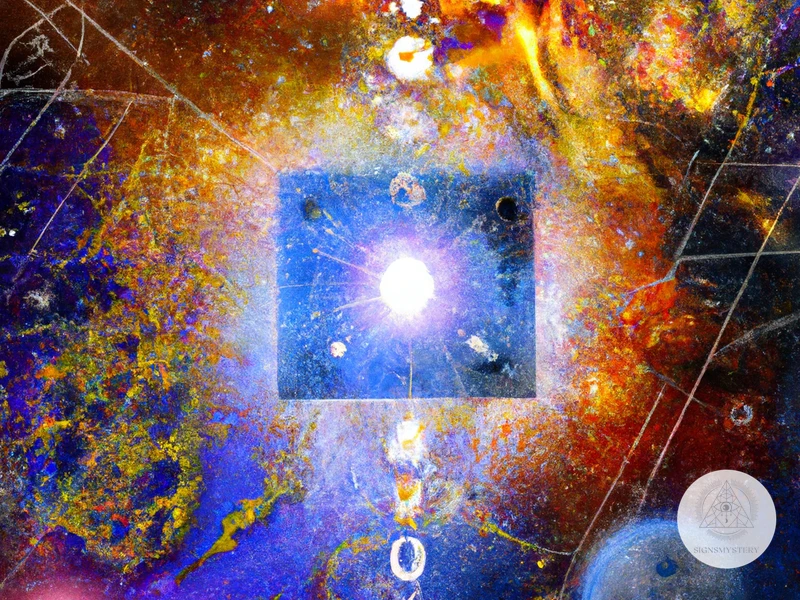
Conclusion
In conclusion, the relationship between numerology and astrology has transcended time and culture, leaving an indelible mark on human history. These ancient practices have provided individuals with a deeper understanding of themselves, their relationships, and the world around them. Numerology, with its study of numbers and their symbolic meanings, offers insights into personality traits, life paths, and even compatibility in love and relationships. Astrology, on the other hand, explores the celestial bodies and their alignment, providing guidance on personality traits, life events, and the influence of cosmic energies. Together, numerology and astrology create a complete system for self-discovery and personal development. Through the ages, these practices have influenced art, literature, and even historical events. As we move into the future, the relevance and impact of numerology and astrology only continue to grow. Whether seeking guidance in love, exploring personality traits, or embarking on a journey of self-discovery, the ancient wisdom of numerology and astrology offer endless possibilities for those who wish to delve deeper into the mysteries of the universe.
Continue to explore the fascinating world of numerology compatibility and find out how numbers can influence your relationships. Learn more about master numbers and compatibility here.
Frequently Asked Questions
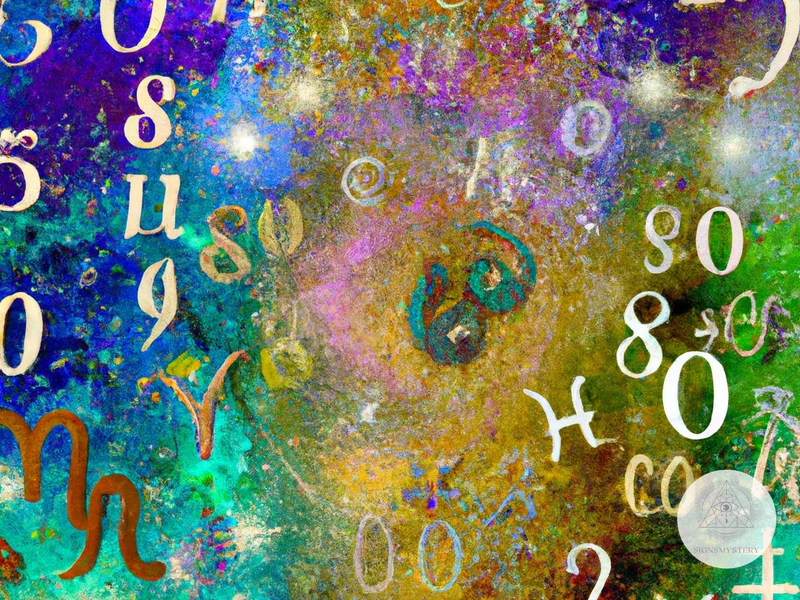
What is the significance of the Life Path in numerology?
The Life Path is a key component of numerology that is derived from a person’s birthdate. It represents the journey and lessons one is meant to experience in life. By calculating the Life Path number, individuals can gain insights into their personality traits, strengths, and challenges.
How does numerology factor into love and romance?
Numerology can offer valuable insights into love and romance by examining the compatibility between individuals based on their numerological numbers. By analyzing the Life Path numbers, expression numbers, and other relevant numbers, numerologists can determine the compatibility and potential challenges in a romantic relationship.
What are master numbers in numerology?
Master numbers are powerful numbers in numerology that include 11, 22, and 33. These numbers possess intensified energy and are associated with spiritual growth, intuition, and a higher level of consciousness. They offer unique opportunities and challenges for those who have them in their numerological charts.
How does numerology determine compatibility between individuals?
Numerology determines compatibility by analyzing the numerological numbers of two individuals and assessing the compatibility of their traits and energies. Compatible numbers often share similar vibrations and can indicate a harmonious relationship, while conflicting numbers may suggest challenges or areas of potential conflict.
What is the connection between numerology and astrology?
Numerology and astrology are interconnected through their shared belief in the influence of cosmic energies. While astrology focuses on the positions and movements of celestial bodies, numerology assigns meanings and vibrations to numbers. Together, they provide a comprehensive framework for understanding and interpreting life’s experiences.
Can numerology help with personal development?
Absolutely! Numerology can play a significant role in personal development by providing individuals with insights into their strengths, weaknesses, and life path. By understanding these aspects, individuals can work on personal growth, make informed decisions, and align their actions with their true purpose.
Are there different systems of numerology?
Yes, there are various systems of numerology practiced around the world. Some popular systems include Pythagorean numerology, Chaldean numerology, and Kabbalistic numerology. Each system has its own unique approach to interpreting numbers and may place emphasis on different aspects of numerological analysis.
How can numerology be applied to everyday life?
Numerology can be applied to everyday life in numerous ways. Individuals can refer to their numerological charts to gain insights into their personality traits, make career choices aligned with their life path, select auspicious dates, or even choose compatible partners for both personal and professional relationships.
Does numerology have any scientific basis?
Numerology is not based on scientific principles and is considered a metaphysical practice. It operates on the belief that numbers hold inherent vibrations and symbolic meanings that can provide guidance and insight into various aspects of life. While it may not have a scientific basis, numerology has been studied and practiced by many cultures throughout history.
Can numerology predict the future?
Numerology does not predict the future with certainty. Instead, it provides a framework for understanding the energetic influences and potential trends in an individual’s life. By analyzing the patterns and vibrations associated with specific numbers, numerology can offer guidance and help individuals make informed choices for their future.
References
- What is the connection between numerology and astrology …
- Relationship Between Numerology and Astrology
- Numerology, astrology and horoscopes: a beginners guide
Frequently Asked Questions

1. How does numerology work?
Numerology is a belief system that assigns numerical values to letters and numbers, which are then used to analyze and interpret various aspects of a person’s life. It operates on the belief that numbers have inherent vibrations and symbolism that can provide insights into personality traits, life cycles, and future events.
2. What is the significance of ancient numerology in different civilizations?
Ancient civilizations such as the Babylonians, Egyptians, and Greeks, among others, recognized the power of numbers and integrated numerology into their cultures. They believed that numbers held divine significance and used them to understand the world around them, including predicting celestial events, making important decisions, and uncovering hidden meanings.
3. How does astrology determine personality traits?
Astrology is based on the belief that the positions and movements of celestial bodies at the time of a person’s birth influence their personality traits and life path. Astrologers use birth charts, which map the positions of the sun, moon, planets, and other celestial bodies at the moment of birth, to interpret the influence of these cosmic forces on an individual’s character and destiny.
4. What are the key elements of astrology?
Astrology encompasses several important elements, including the twelve zodiac signs, which are assigned to specific periods in a year and represent distinct personality traits. Other key elements include the planets, which have different symbolic meanings and influences, the houses, which represent different areas of life, and aspects, which describe the relationships between planets.
5. How did numerology and astrology intersect in ancient Greece?
In ancient Greece, numerology and astrology were closely intertwined. Pythagoras, a renowned Greek mathematician and philosopher, believed that numbers were the building blocks of the universe and used both numerology and astrology in his teachings. He believed that the alignment of celestial bodies and the numerical patterns of the universe held great significance for understanding the nature of existence.
6. What was the role of numerology and astrology during the Renaissance period?
During the Renaissance, numerology and astrology experienced a resurgence in popularity. Notable figures such as Leonardo da Vinci and Michelangelo incorporated these esoteric practices into their artistic and scientific pursuits. Numerology and astrology were seen as tools for gaining deeper insights into the mysteries of life and unlocking hidden knowledge.
7. How do numerology and astrology complement each other in contemporary practices?
In contemporary practices, numerology and astrology are often used together to provide a comprehensive understanding of an individual’s life. Numerology can provide insights into one’s personality and life path, while astrology can reveal the cosmic forces and planetary influences at play. Combining these two systems can offer a more holistic perspective on life’s complexities.
8. What are some popular numerological and astrological systems used today?
Some popular numerological systems used today include the Pythagorean system, Chaldean system, and the Kabbalistic system. As for astrology, the Western astrological system, which is based on the tropical zodiac, is widely followed. Vedic astrology, rooted in ancient Indian traditions, is another prominent system that focuses on the sidereal zodiac.
9. How have numerology and astrology influenced art and literature throughout history?
Numerology and astrology have served as a source of inspiration for countless artists and writers throughout history. From Michelangelo’s use of celestial symbolism in his paintings to William Shakespeare’s incorporation of astrological references in his plays, these esoteric practices have provided a rich tapestry of symbolism and meaning for creative expression.
10. Are there any documented instances of numerology and astrology impacting historical events?
While it is challenging to establish direct causation between numerology, astrology, and historical events, there have been instances where individuals and societies have made decisions based on astrological and numerological considerations. For example, the timing of coronations, battles, and important political and religious events has sometimes been influenced by astrological and numerological factors.




